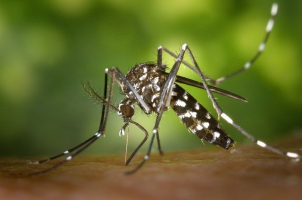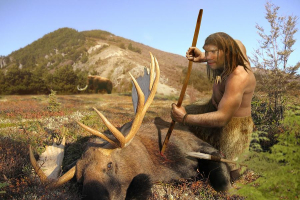Top 10 Most Fascinating Facts About Beetles
The world of beetles is extremely large, they are one of the earliest species on Earth. And there are more than 350,000 different species that have been named ... read more...so far, but scientists suspect there could be as many as a million species. This group of insects includes some well-loved species but is also quite a nuisance to humans. Beetles are more than cute; they are also some of the most complex bugs on the planet. If you don't believe it, consider the following fascinating facts about beetles.
-
The largest group of insects, the Coleoptera, includes the beetle. Around 250,000 different species of beetles can be found worldwide. Stephen Marshall, an entomologist, claims that beetles can be found practically everywhere on the earth, even on the poles.
From woods to grasslands, from deserts to tundra, and from beaches to high mountains, they can be found both on land and in freshwater. Even beetles may be found on some of the world's most isolated islands. JBS Haldane, a British geneticist and agnostic, believes that God must have had an infinite amount of love for this beetle. Maybe this explains why they can always be found on Earth, no matter where you go.
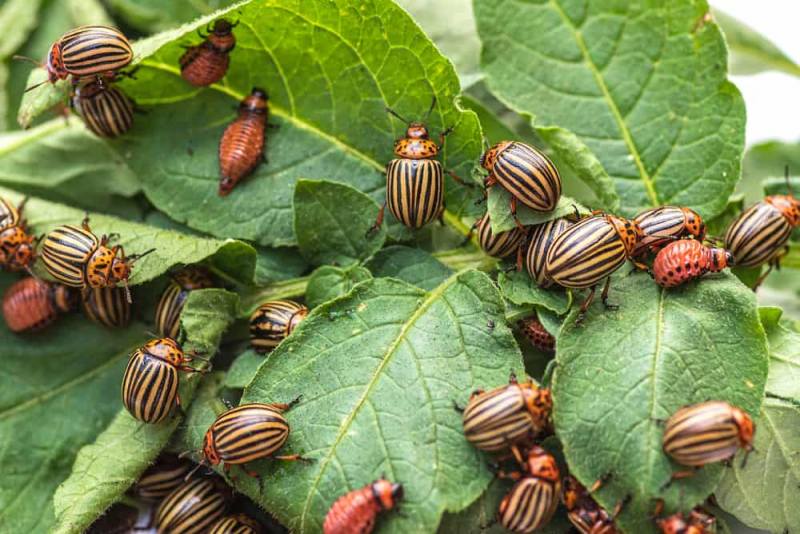
Beetles live everywhere 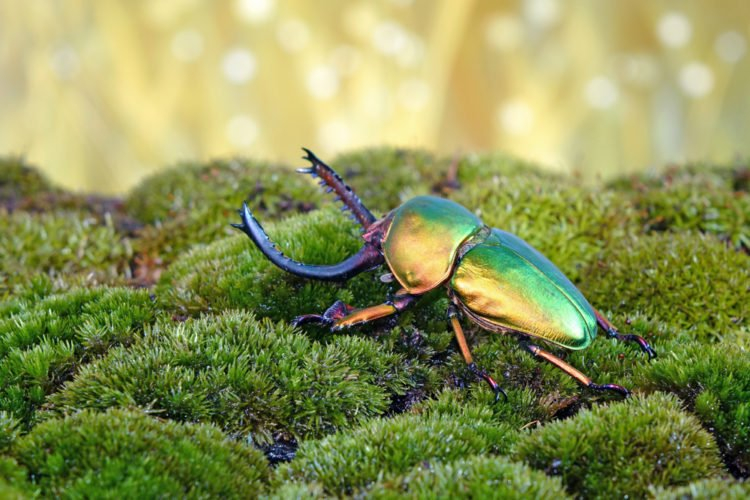
Beetles live everywhere -
The four phases of a beetle's life cycle are egg, larva, pupa, and adult. After mating, the adults mate and seek out lush green gardens to lay their eggs. Beetles live and lay eggs in the ground. Young caterpillars when hatched already have good food available. A female beetle typically lays 90 eggs. An adult has a life span of 30 to 60 days. Male adults typically live for 13 days, and females do so for 14 to 44 days.
The amount of food that the larvae have access to as well as the surrounding factors, however, also affect how long the life cycle lasts. Additionally, depending on the species, some beetle species can generate more than one generation every year and grow quite swiftly. However, other species, like the wood-eating beetle, require years or even decades to mature from an egg into an adult.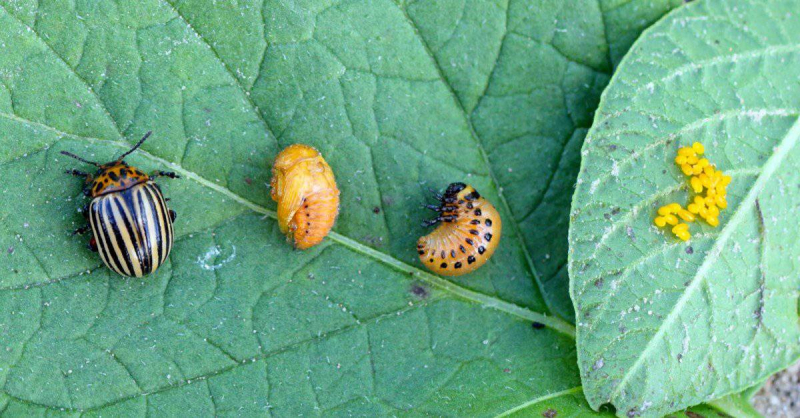
Interesting growth life cycle 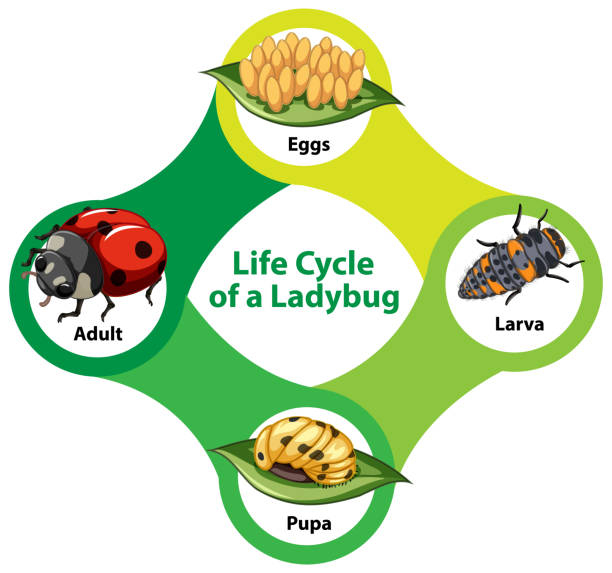
Interesting growth life cycle -
A chemical process involving the luciferase enzyme causes beetle bioluminescence. The firefly (family Lampyridae) is regarded as a species of beetle that uses a light organ on its abdomen to send messages to attract mates. Red lights can occasionally be seen coming from a light organ on the head of fireflies. Typically orange-red or yellow-green in color, males, females, and larvae all emit a cold light. In certain species, even the eggs are luminous.
By using two oval light organs on the thorax and a third light organ on the abdomen, tropical beetles (of the family Elateridae) may also generate light. It is believed that light plays a significant influence in their receptive behavior in order to draw in the opposing sex.
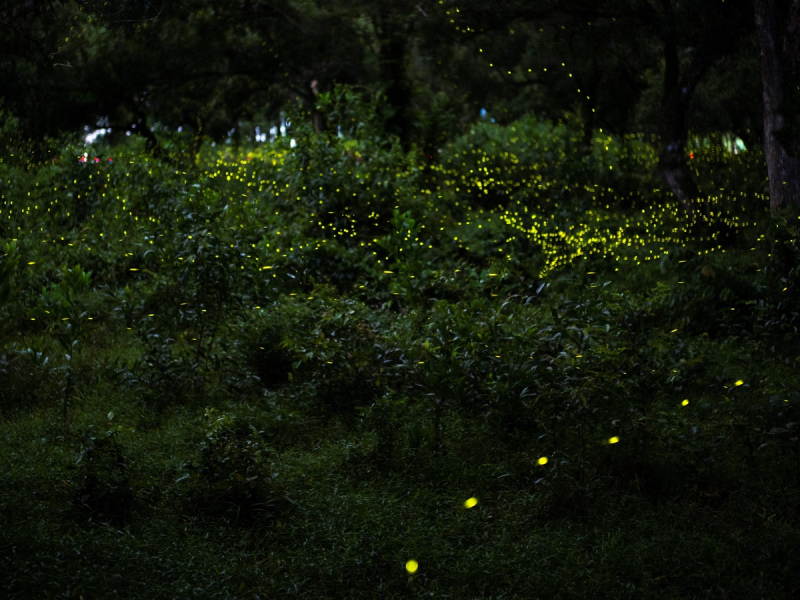
Some beetles glow in the night. 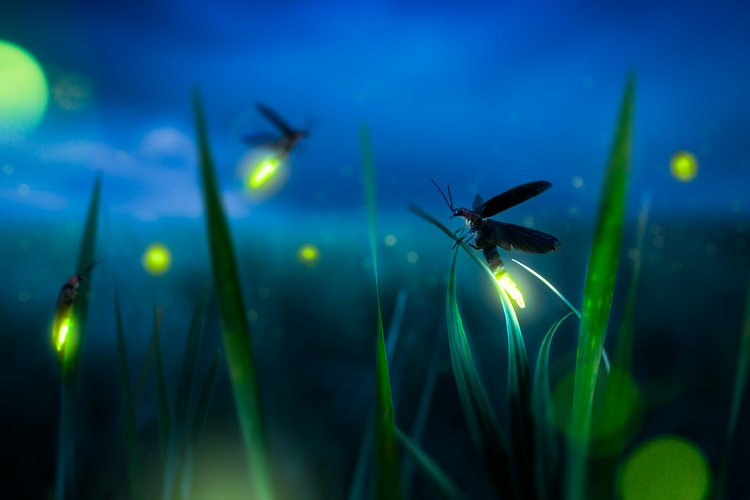
Some beetles glow in the night. -
Some beetle species have the potential to develop into highly dangerous insects. Larvae of carpet beetles consume feathers and natural fabrics. They frequently ruin wool and other textiles. Others, such as powdery mildew, eat bamboo and hardwood. They attack wooden furniture and other objects. Some species, including the cereal and flour weevils, target food within the home. Additionally, they cause retailers and manufacturing facilities to lose food.
Numerous bug species wreak havoc on gardens and lawns. Grass roots are attacked by June beetle larvae. By devouring leaves, leaf insects kill plants. Numerous beetle species are helpful insects. Ladybugs eat plant pests including mealybugs and aphids. They are also known as queen beetles or orange beetles. Beetles, such as ladybugs and runner beetles, however, can be a pain. In late summer and fall, homeowners can find hundreds of individuals gathered outside the house. They are trying to invade the house to find shelter through the winter or avoid harsh conditions.
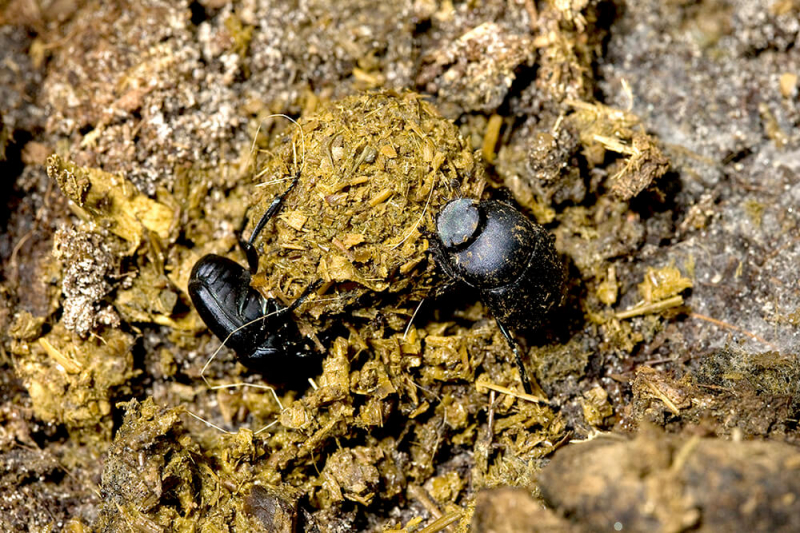
Great potential for harm 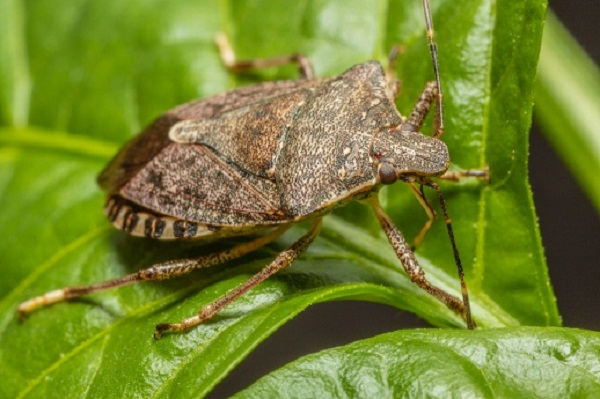
Great potential for harm -
Only a very small percentage of insects are dangerous to people, and the majority never even pose a threat. However, the Parrotidae beetle family also has a number of species that have a significant economic influence due to the abundance of species of herbivorous insects. Each year, millions of trees are felled by wood and bark beetles which resemble the pine beetle and stem borer, respectively.
For agricultural pests like the western corn rootworm or the Colorado beetle, farmers have spent millions on insecticides and other control methods. Furthermore, some pests, like the cereal-eating Khapra beetle, also do significant economic and crop harm after the crops are harvested. The amount that gardeners spend setting up Japanese pheromone traps (a waste of money) is even greater than the GDP of some small countries.
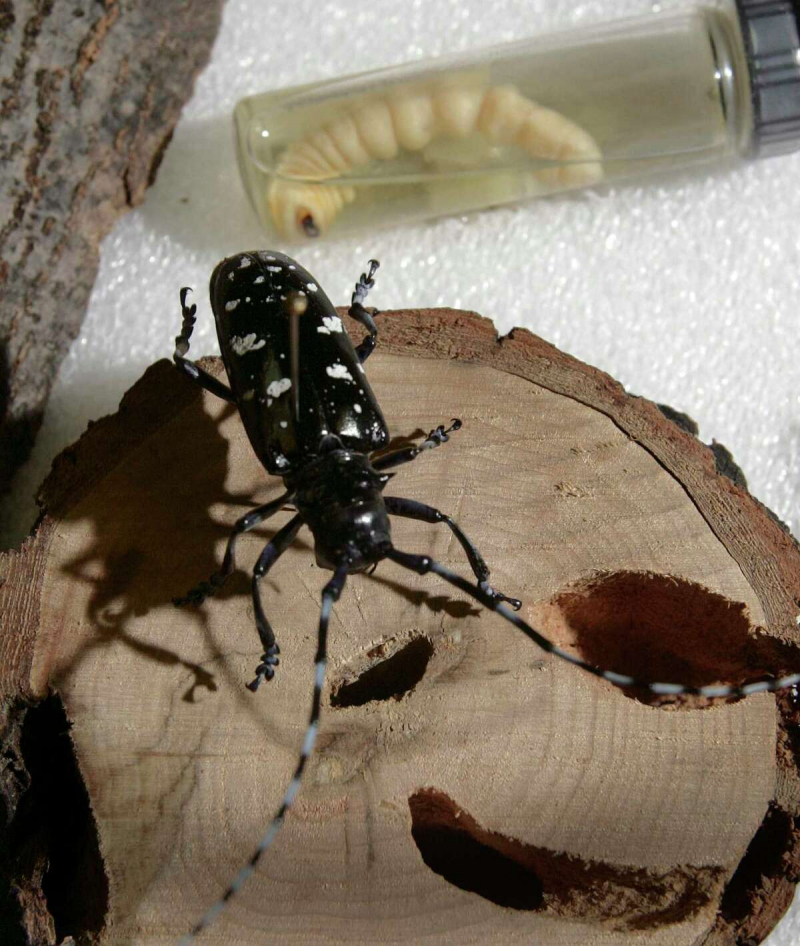
Big impact on the economy 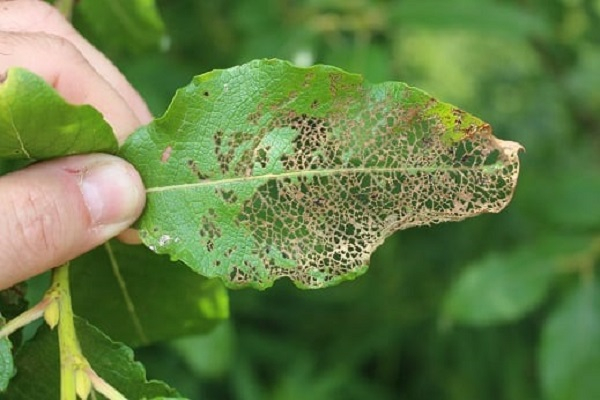
Big impact on the economy -
Many insects are quite famous for the sounds they make. Examples: Cicadas, crickets, grasshoppers, and American grasshoppers all sing their own songs. Many beetles also make sounds, though not as gracefully as their straight-winged cousins. For example, woodworms make "creaking" sounds for many hours,...
Beetles spawn in a variety of environments, from grasslands, scrublands, and forests to swamps, beaches, and caves. The beetles are mostly nocturnal, and the male has a loud, persistent crowing to attract the female, although some species cannot. Interestingly, this chime is not coming from within its mouth but rather is generated through the friction between its wings. Commonly found adult beetles have two pairs of wings. The front wings are relatively stiff, and have the effect of vocalizing and protecting the body while the soft hind wings have the effect of flying.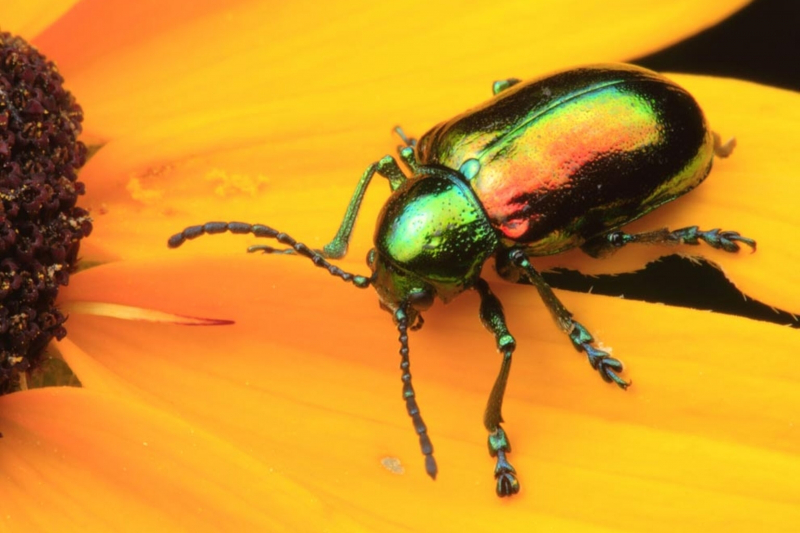
Can make noise 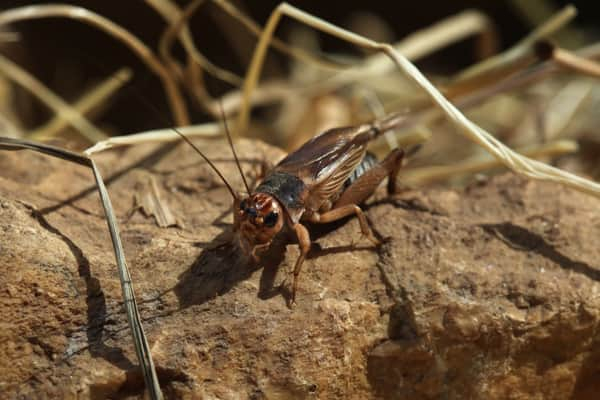
Can make noise -
The first beetle-like creatures appeared in fossils from the Permian period, about 270 million years ago. The real beetles – like modern beetles today – first appeared 230 million years ago. The beetles even existed before the breakup of the supercontinent Pangea, and they even survived the extinction of the dinosaurs.
Scientists are still learning this interesting thing, beetles have demonstrated a good ability to adapt to changes in the ecosystem. A common feature in most adult beetles and their young is that they are forced to use their mouths to chew. Most beetles are herbivores, but some species (such as ladybugs) hunt and eat smaller insects. Some species even eat mushrooms. Because it can eat plants and animals, its probability of extinction is very low.
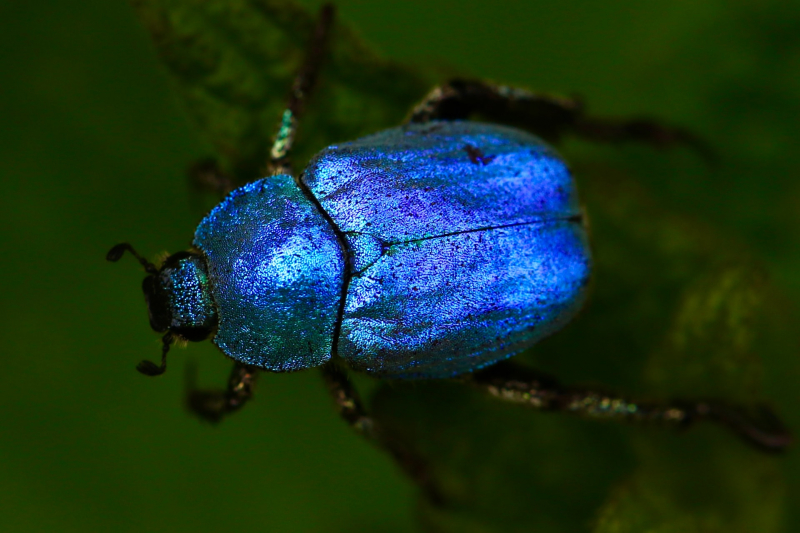
Appeared 270 million years ago 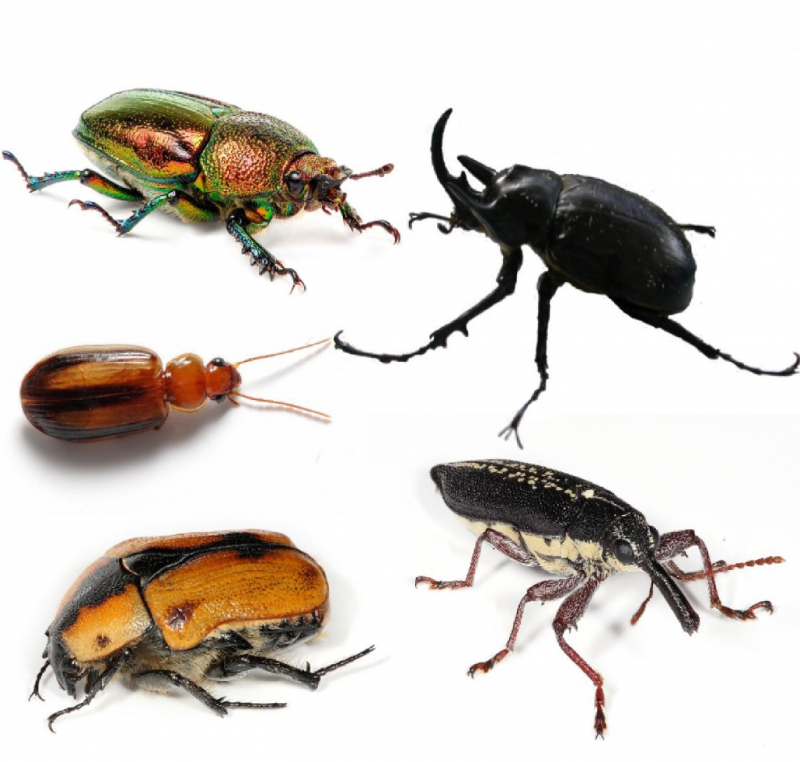
Appeared 270 million years ago -
Cereal weevils can be identified by their amusingly extended proboscis, but in fact, they are actually a kind of beetle. Wood weevils of different species and probosci's beetles are both members of the subfamily Curculionoidea. The cereal weevils' proboscis gives you the impression that they consume similarly to other beetles by sticking it in the flour and sucking it in. The cereal weevil has jaw muscles that allow it to chew food, just like all other beetles do.
Cereal weevils are well-known warehouse pests that frequently contaminate and harm uncooked food eaten in residences or commercial settings. In homes and places of work including restaurants, grocery stores, and food processing facilities, this mite poses a health risk. They can cause huge economic losses through damage and contamination of food products.
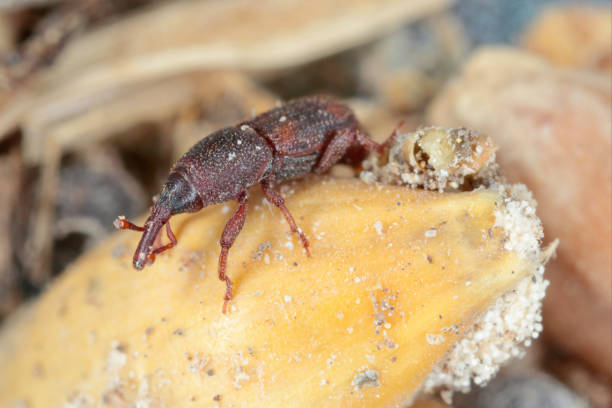
Cereal weevils are also beetles 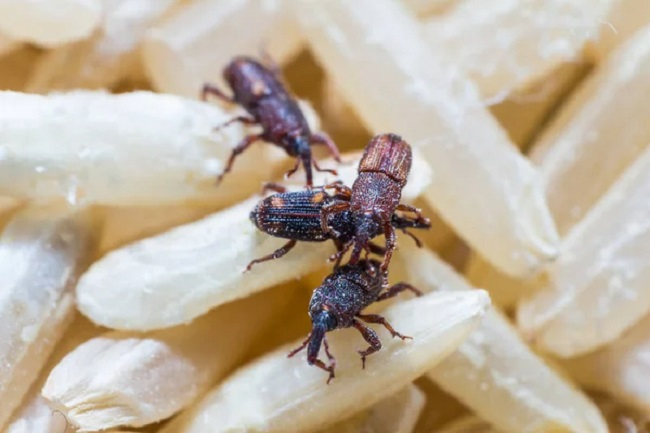
Cereal weevils are also beetles -
Beetles range in size from extremely small species to truly giant species. The shortest beetle species is the feathered beetle (family Ptiliidae), most of which are less than 1 mm in size. On the other hand, the giant beetle (Goliathus goliathus) can weigh up to 100 grams. The longest known beetle comes from South America and is called Titanus giganteus, which can grow to over 30 centimeters in length.
The giant beetle, despite its terrifying size, is completely harmless to humans. This insect hides in the tropical jungles of South America and only crawls out when looking for a mate. It is surprising that the larvae of this creature have never been seen, however, scientists believe that the larvae can be more than 5cm in diameter and up to 30cm in length.
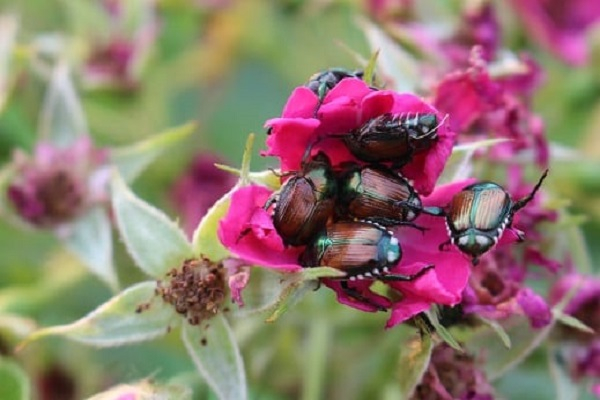
Beetles come in many different sizes 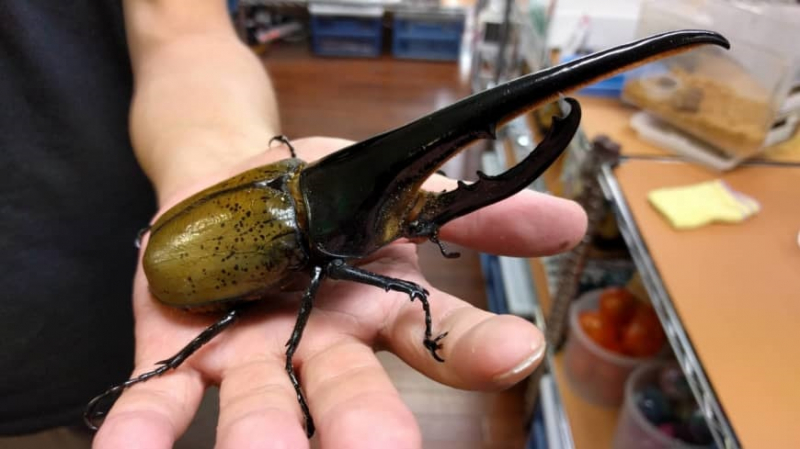
Beetles come in many different sizes -
The largest known group of insects is the beetle species. They belong to the order Beetles, which represents around 25% of all known living forms and has the most described species of any animal kingdom order. About 40% of the insects described are beetles (about 400,000 species) and more and more new species are discovered.
The largest known group of organisms is the beetle family, which accounts for nearly one-fourth of all known living things. More than 350,000 different species of beetles have been identified by scientists, but many more remain undiscovered. There may be about 3 million species of beetles on this globe, according to some estimates. In addition, the animal kingdom's largest class is the beetle.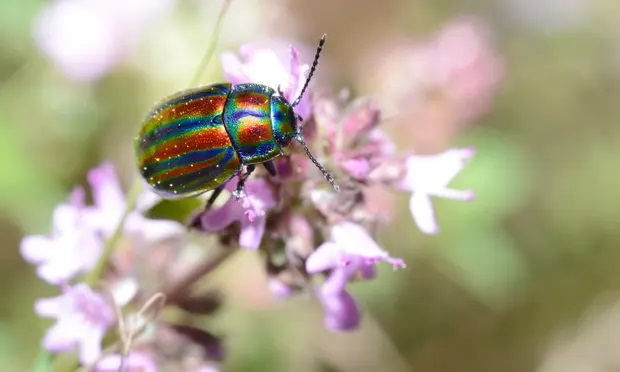
Beetles make up a large number on Earth 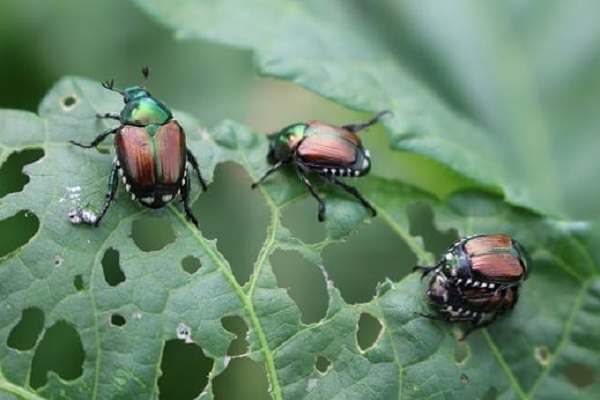
Beetles make up a large number on Earth












